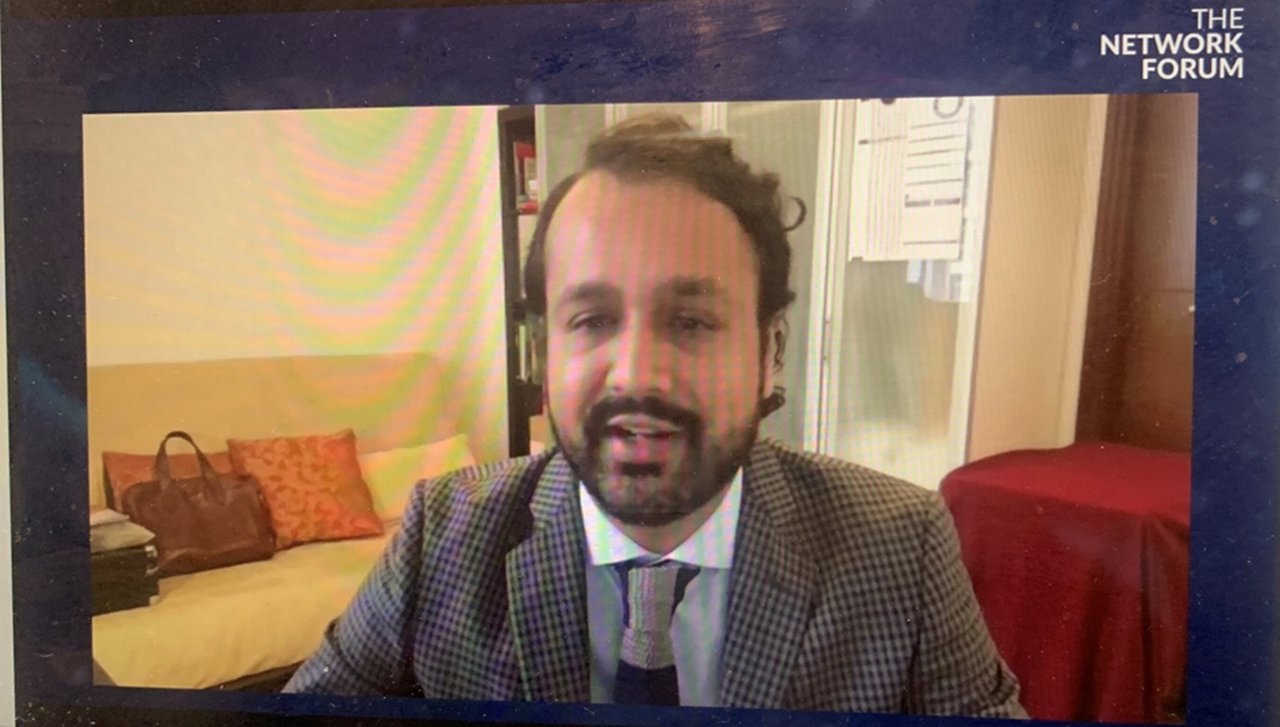January 2021
Digital transformation in post-trade has accelerated with the use of tools to automate manual processes and reduce latency during pandemic-related disruption. flow’s Janet Du Chenne looks at how a menu of APIs is helping clients to cope with the present and plan for recovery
Covid-19 disruption has pivoted the post-trade securities industry towards the use of e-signatures, APIs, data dashboards and other digital tools in order to function as normal. It has also afforded the users of these tools an opportunity to reassess many manual tasks and reprioritise their digital agenda towards automating them.
Speaking at The Network Forum Virtual Autumn meeting in early November 2020, Samar Sen, Head of Digital Products in Deutsche Bank’s Securities Services business, noted how these tools had enabled clients to self-service and cope with a changed environment. Along with other industry practitioners Sen shared his views on which of these tools and technologies could become a permanent feature in the new normal. He hailed the adoption of those that are enabling the industry to fix “the plumbing in the banking system while the water is still running.”
Given there is no ‘one size fits all’ for clients, the industry needs more strategic solutions to address the latency and time zone challenges across regions. Real time data will be a game changer in this respect said Anand Rengarajan, Head of Securities Services, Asia. “These solutions should also be scalable to help clients who are at different stages of their digital transformation journey.” Custodians should therefore collaborate with all parts of the value chain”.
Deutsche Bank is spearheading this collaboration and targeting APIs towards addressing client pain points and unlocking data in real time. Using the technology it allows clients’ systems to communicate directly with those of the bank. Clients can order from the “menu” of available APIs on the Deutsche Bank public developer portal and use relevant APIs to pull their data directly from the bank’s systems.

Deutsche Bank’s Samar Sen shares how new technologies enable the industry to fix the plumbing in the banking system while the water is running
The beginning: automating workflows
Deutsche Bank first adopted post-trade API technology two years ago to solve operational inefficiencies, namely automating trade queries in securities settlement. “Previously, we were all wasting valuable time on operational items such as manual trade queries,” recalls Sen. The bank developed the chatbot Debbie to resolve the speed and accuracy need in these queries. Using bot-to-bot connectivity between BNY Mellon’s chatbot the bank unlocked some data from its core system, and automatically solved some of the workflows, using platforms like Symphony. This provided clients with real time answers to their trade settlement queries.
It also means less operational overhead for the bank in dealing with one-off client requests, and instead allows it to seamlessly integrate with client back-end systems for end-to-end automation. With the bank’s API developer portal, clients can build more direct integration with a menu of APIs and benefit from real time connectivity.
The present: APIs deliver multiple use cases
Deutsche Bank expanded its API product offering during 2020 and now has four live APIs, which are already in use with some clients. flow examines these in detail:
Cash notifications API: Pioneered and built in partnership with Deutsche Bank’s Cash Management business, the product enables clients to receive information in real time, including credit, debit, running cash balances, and sender details across all their cash accounts as they happen intra-day.
Client use case: An India-based mutual fund client explored the use of APIs with Deutsche Bank to speed up transactions with their end investor clients. They wanted to know their cash balances in real-time as their end customers subscribe into and redeem out of funds. In Planning for the people, Sundeep Sikka, CEO of Nippon India Mutual Fund, comments on how the technology delivered efficiencies. “In the asset management industry, cost is a key issue and the fees we charge to investors will always come under pressure,” he said. “It’s important to keep leveraging technology, so that the cost per transaction reduces and efficiency and productivity keep going up.”
Using “push notification” APIs, Deutsche Bank directly streams messages containing this information in real-time. These messages contain credit/debit postings, running cash balance, and sender details across all their cash accounts as they happen. These API messaging formats replace the previous web-based scheduled statement, empowering the fund’s portfolio managers and treasurers with liquidity position information at all times of the day and enabling them to re-allocate free capital within their funds. Using sender details, they also automate checks on who is subscribed to these funds (a regulatory requirement).
Settlement status API: Developed in collaboration with a client, the API enabled them to request trade settlement status, and receive near-immediate responses on the status of their trades.
Client use case: The client wanted to be able to query their trade settlement status in real-time, particularly in emerging markets. Deutsche Bank’s Debbie chat-bot allowed them to do this, but required customers to use the Symphony messaging platform. With the business’s new S2-Stream real-time infrastructure (a new platform that redesigns the technology organisation within Securities Services) and market connectivity efforts, the bank can now offer this settlement status query tool to customers via its direct API.
The API will be rolled out in markets in Europe and Asia in H1 2021.
"We are unbundling our services and offering them via new channels such as APIs, which allows for much tighter integration between us and our clients"
Custody FX approval status API: Developed in mind for traders who are frustrated by a manual FX pre-execution process in restricted emerging market currencies, this API enables clients to pre-validate securities thereby automating the process to speed it up.
Client use case: Foreign investors dealing with restricted currency markets face challenges due to the manual processes used to perform the necessary validations and approvals before executing an FX trade. This API-enabled FX digital workflow solution, developed in collaboration with global custodian client BNY Mellon, automates FX confirmation times and reduces the pre-trade lifecycle from hours to seconds.
BNY Mellon will use Securities Services’ custody FX approval status API to automate validation of the underlying securities transactions relevant for FX, check real time cash balances to ensure there are sufficient balances for FX execution, and improve confirmation times for the restricted emerging-Market FX trades. This solution is already being used by the client within Symphony, and this API is an extension of that work ported to a new open channel for other clients.
The solution is currently live in South Korea for the Won, with the Indonesian Rupiah and the Indian Rupee targeted next. Subsequently, it will be progressively rolled out to a broad range of restricted currencies, which are linked to investors’ underlying equity or fixed-income transactions.
Fund NAV API: enables clients to request per-unit fund net asset values (NAVs) for all the funds they entrust to Deutsche Bank for fund administration, rather than wait for scheduled statements.
Client use case: The API provides fund administration clients with direct access to their fund data, so that they can create analytics and decision-making dashboards. Clients connecting to the API can directly extract their per-unit fund NAV (as soon as it’s processed by the core fund services system). The business is enhancing the API with additional fields for fund API extraction, specifically: portfolio value summary, allocation details, balance sheet, gain and loss statement, income statement, performance analysis, and capital transfers.
Live in India, Deutsche Bank is planning to deploy the API in other counties in Asia in H1 2021.
Furthermore, due to the build-out of these APIs, Deutsche Bank is planning to offer customers a white-labelled mobile app solution, to enable our clients’ end-investors the ability to view their fund performance.
Next stop on the API journey
Deutsche Bank will add more API releases to its menu in 2021, based on further use cases in securities services. “At our core we are unbundling our services and offering them via new channels such as APIs, which allows for much tighter integration between us and our clients,” said Sen. Via the new upcoming Deutsche Bank Corporate Bank portal, the business will offer more features to customers. This will include real time data dashboards for exception handling, billing, market entry tools, corporate actions, on-boarding, tax and the Digital Service Manager where clients can self-service on queries and issues.
“And finally, we're looking at technology partnerships whereby we can deliver data directly to the front end of our clients so that they can use it for their risk, portfolio management, and treasury management systems,” shared Sen. “This means the customer would be automatically compatible and would not need several APIs in order to connect with us.”
Go to Corporate Bank EXPLORE MORE
Find out more about products and services
Go to Corporate Bank Go to Corporate BankStay up-to-date with
Sign-up flow newsbites
Choose your preferred banking topics and we will send you updated emails based on your selection
Sign-up Sign-upSubscribe Subscribe to our magazine
flow magazine is published annually and can be read online and delivered to your door in print
You might be interested in
SECURITIES SERVICES {icon-book}
Connecting capital Connecting capital
International investors can’t get enough of China, and Hong Kong Exchanges and Clearing has been at the innovation coalface, facilitating access by upgrading its post-trade systems and using new technologies to accelerate the settlement of securities
SECURITIES SERVICES
Asia’s growth: pause or detour? Asia’s growth: pause or detour?
The second event in the series “The future of Asset Servicing Leadership”, organised by The Asset magazine in collaboration with Deutsche Bank, considered whether growth in Asia is experiencing a pause or a detour
SECURITIES SERVICES
Automating assets Automating assets
Deutsche Bank’s Boon Hiong Chan and Celina Chua assess how digital tools are being employed in post-trade to deliver new benefits to clients services at the front end of the securities lifecycle



